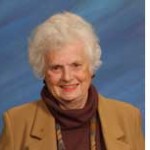By Natasha Josefowitz, Ph.D.

LA JOLLA, California — I have been stuck between wanting to go everywhere and do everything and wanting to go nowhere and do nothing but stay home and read. If by chance I have a day without an appointment, it feels like a gift; I can actually take the time to read the New York Times leisurely while drinking a cup of coffee.
The things that pull me away from having that quiet time are the hate-to-miss lectures, interesting board meetings, fascinating museum tours, great theater and concerts, and meaningful conversations with friends. There is always a gallery opening or a new restaurant or other fun event.
I have a disease called ATMS—afraid to miss something. But common wisdom warns us that “curiosity killed the cat.” (I don’t really know what that poor cat did to deserve such a fate.) There is also the bear that went over the mountain, and all he saw was the other side of the mountain.
Our species left its birthplace in the African savanna to populate the far reaches of the planet. Early humans were propelled by curiosity and wander lust to risk their lives going over the mountains and sailing the oceans to discover unknown lands. For many, curiosity was accompanied by the hopes of discovery or making a fortune or in search of better hunting grounds.
I see curiosity as having two different components. On one hand there are the Einsteins of the world who single-mindedly pursued their curiosity about how the world works, to the detriment of connections to family. The other kind of curiosity—which plagues me—is non-directional and encompasses a multitude of possibilities.
Does one ever reach a point when one knows enough? Just like a book, article or column is never really finished—for it can always be improved—at some point it needs to be abandoned. Abandoning the impulse to learn more would allow one to read a book that is not educational, go to a movie that is not a documentary, and simply have fun without benefit to one’s growth and development. Somehow I rarely give myself that permission; it feels like a waste of time in the pursuit of mere pleasure.
The need to keep seeking knowledge is due on one hand to curiosity, but also to a pervasive feeling of inadequacy. Does one ever know enough or feel good enough about oneself to be able to rest on whatever laurels we have garnered over a lifetime? It feels good to be able to add a bit of knowledge to a conversation or know the answer to a question. The wonder of the smartphone is that now we don’t need to have so much storage in our heads; we can simply access the dictionary or a complete encyclopedia at the touch of a button. We no longer need to know everything because Siri on our iPhone is there at our beck and call and can quell our infinite curiosity.
The problem for me is that the more I know, the more I know how little I know, and, therefore, need to learn. Cicero called curiosity a passion for knowledge. Aristotle called it a need for information. Freud said it was a psychological drive. We humans have a need for making sense of the world, to search for explanations. There is more pain at not having information than pleasure of obtaining it. Impulsivity also plays a part. When the phone rings, I have a hard time not answering it even though it would be an unwelcome interruption. I see people compulsively pick up their smartphones whenever it rings; I do, too. This is a compelling curiosity wanting to know who is calling or texting. The reason given: it might be important! The real motivation is this insatiable curiosity: who is it that’s calling, texting or even sending an email? It is also our need to stay connected and not miss out. We are forever seeking new horizons driven by the fascination of our world.
Most animals exhibit exploratory behaviors, so I guess I will just have to keep exploring my world, seeing the new movie or going to that party that might be really fun. I am curious whether you, my readers, can relate to this column.
© Natasha Josefowitz. This article appeared initially in the La Jolla Village News. You may comment to natasha.josefowitz@sdjewishworld.com Comments intended for publication in the space below must be accompanied by the first and last name of the letter writer and his/her city and state of residence (city and country for those outside the United States.)
I love this article Natasha!:) I am a late bloomer at 54 re. the desire to learn dept. I love what you said about” the more we know, the more we don’t know… One thing leads to another I’m finding out. I’m always plugged into a podcast now, or listening to talk radio, soaking up different views on things from people. I now have a bookcase full of books that I look forward to. They’re like money in the bank to me, none of them fiction. A book bag that I carry with me so that thru the path of least resistence I might learn something inbetween something else I’m doing. This newspaper here that I found your article, and many other bits of priceless information that I am most grateful for:) Thank you!
–Chris Case, Everett, Washington
Absolutely I can relate to this column, Natasha! I am a life-long learner! I had already highlighted and copied your quotes from Cicero, Aristotle, and Freud before I got to your last paragraph hinting for feedback! We used to have a come-back expression about curiosity killing the cat: . . .but satisfaction brought him back!
–Karla Ober, San Diego